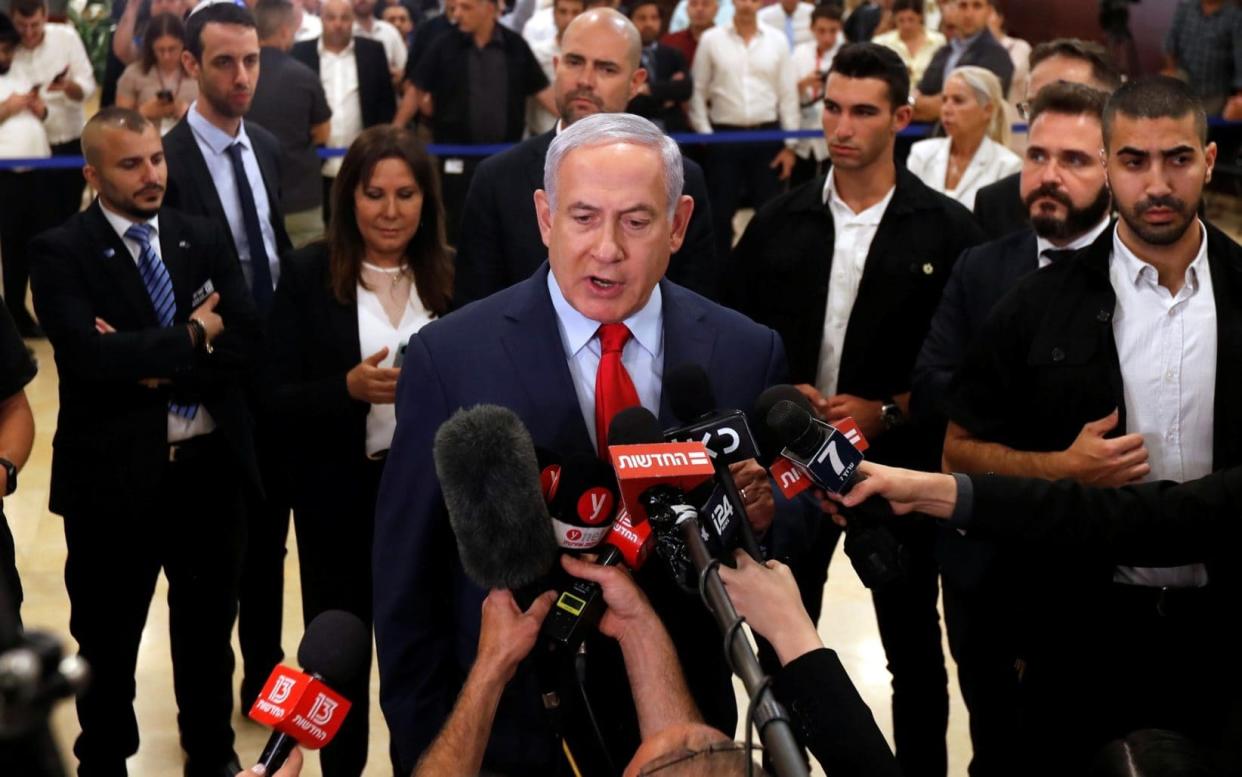Israel to hold unprecedented second election after Netanyahu fails to form a coalition

Israel is heading for an unprecedented second election in less than six months after Benjamin Netanyahu failed to form a coalition before a Wednesday night deadline and instead forced through a bill to dissolve parliament.
Mr Netanyahu won the most votes in April’s election but has spent the last six weeks struggling to convince smaller Right-wing parties to join his coalition and help him form a majority government.
After a series of frantic last-ditch negotiations broke down, a stony-faced Mr Netanyahu returned to parliament shortly before midnight on Wednesday and voted in favour of a bill to hold new elections on September 17.
The bill passed 74-45. Moments after the vote, Mr Netanyahu condemned the new elections as “superfluous, wasteful elections that nobody needs and nobody wants because the people already spoke”.
Israel has never before been forced to hold two elections in a single year and the political chaos is a potentially seriously blow to Mr Netanyahu, who managed to win the April elections despite facing criminal corruption charges.

The prime minister, who has held power for 13 years, had hoped to use his new government to change the law and shield himself from prosecution. Instead, he finds himself fighting an unwanted second election.
The turmoil in Israel is likely to have repercussions on the White House’s Israeli-Palestinian peace plan.
The economic half of the plan is due to be unveiled at a summit in Bahrain next month, while the more controversial political half was expected to be rolled out at a later date. It seems likely the political component will now be delayed or potentially shelved completely.
Jared Kushner, Donald Trump’s son-in-law and point man on the peace process, is due to meet with Mr Netanyahu on Thursday.
The Israeli prime minister’s woes centred around Avigdor Lieberman, his mercurial former defence minister who leads the small Yisrael Beiteinu Right-wing party.
Mr Lieberman, an avowed secularist, said he would only join Mr Netanyahu’s government if the prime minister pledged to move ahead with a law that would increase the numbers of ultra-Orthodox Jewish men conscripted into the Israeli military.
Ultra-Orthodox Jews are currently exempted from military service as long as they can show they are involved in full-time religious studies.
Mr Lieberman’s demands were flatly rejected by the ultra-Orthodox political parties, whom Mr Netanyahu also needed to form a majority government.
The prime minister spent weeks trying to broker a compromise between the two sides but was ultimately unsuccessful, despite an intervention from Donald Trump who said he was hoping for a deal.
Mr Lieberman accused the prime minister’s Likud party of caving before the ultra-Orthodox, also known as the haredi.
“The Likud surrendered completely to the haredi,” he said, shortly before the parliamentary vote.
Mr Netanyahu blasted Mr Lieberman, saying he was dragging the country to elections “because of his own whims”.

